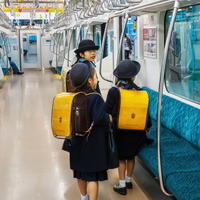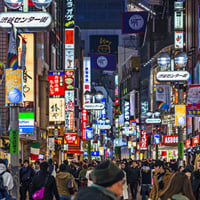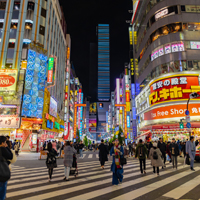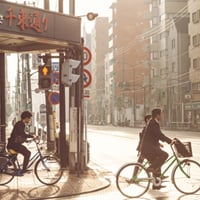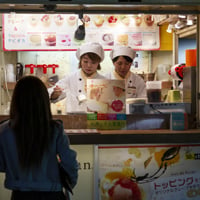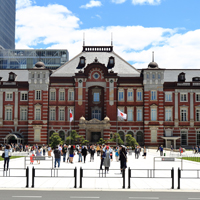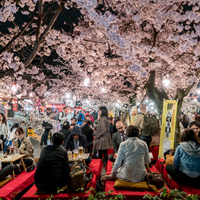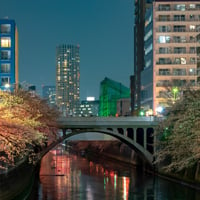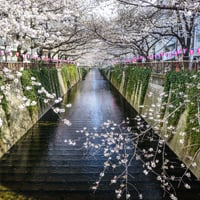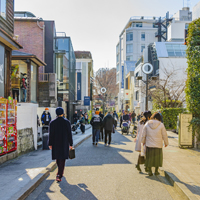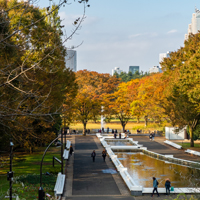Japan
Coastal BeachesJapan is an island nation in East Asia, located in the Pacific Ocean. It is a country where tradition meets modernity, with ancient shrines and temples coexisting alongside cutting-edge technology and skyscrapers. The country consists of four main islands: Honshu, Hokkaido, Kyushu, and Shikoku, along with numerous smaller islands. Its capital, Tokyo, is a bustling metropolis known for its neon-lit streetscapes and vibrant culture. Japan's geography is diverse, featuring mountainous regions, coastal areas, and forested valleys. Mount Fuji, an iconic and active volcano, is a symbol of the country and a popular destination for both tourists and pilgrims. Japan's culture is rich and multifaceted, encompassing traditional arts such as tea ceremonies, ikebana (flower arranging), and sumo wrestling, as well as contemporary pop culture phenomena like anime and manga. The country's cuisine, including sushi, ramen, and tempura, has gained worldwide acclaim for its flavors and presentation. Japan has a long history that can be traced back thousands of years, and it has developed a unique cultural and social system. The nation has experienced periods of isolation as well as significant influence from other parts of Asia and the West. This has resulted in a complex and nuanced cultural heritage that is distinctly Japanese. The country is also known for its educational system and technological advancements, being a leader in industries such as electronics, automotive, and robotics. Japan's natural beauty, from the cherry blossoms of spring to the red leaves of autumn, attracts visitors throughout the year, and its four distinct seasons offer a variety of experiences for residents and tourists alike. Despite its natural wonders, Japan is also known for its susceptibility to natural disasters, such as earthquakes and tsunamis, and has developed extensive disaster preparedness measures. Overall, Japan is a country of contrasts and harmony, where the past is cherished even as the future is eagerly embraced.
 PassportCard Expat Health Insurance
PassportCard Expat Health InsuranceGet Quote
Never worry about paying your medical bills out of pocket again. The innovative PassportCard allows for a stress-free experience for all expat families, remote travelers, and workers. With a 24/7 customer service and an outstanding customer base of over 2 Million clients, it will feel like medical care at home. Get up to 10% off on your policy now.
 PassportCard Expat Health Insurance
PassportCard Expat Health InsuranceNever worry about paying your medical bills out of pocket again. The innovative PassportCard allows for a stress-free experience for all expat families, remote travelers, and workers. With a 24/7 customer service and an outstanding customer base of over 2 Million clients, it will feel like medical care at home. Get up to 10% off on your policy now.
Get Quote
Podcasts
17 Years in Tokyo
Living in Japan
Best Places to Live in Japan
Visa & Residency
Obtaining a residency in Japan involves several steps and the process can be quite meticulous, but it is manageable with the right documentation and preparation. The most common types of residency visas include the Highly Skilled Professional Visa, which is aimed at attracting skilled foreign professionals in certain fields; the Working Visa, for those with job offers in Japan in various categories such as Engineer, Specialist in Humanities, or International Services; and the Spouse or Child of Japanese National Visa, for those who have a family connection to a Japanese citizen. The process typically starts with securing a job offer or sponsorship from a Japanese company or individual, which is necessary for most types of work-related visas. The sponsor in Japan will often assist in the application process and provide necessary documentation, such as a Certificate of Eligibility (COE), which is required to apply for the visa at a Japanese embassy or consulate in the applicant's home country. Applicants must submit the COE, a valid passport, visa application form, photograph, and any additional required documents specific to the type of visa they are applying for. The requirements can vary greatly depending on the visa category, so it is crucial to check the specific criteria for the chosen visa type. Once the application is submitted, it can take several weeks to several months for the Japanese authorities to process the visa. If approved, the applicant will receive a visa that allows them to enter Japan. Upon arrival, they must register their residence at the local municipal office and apply for a Residence Card, which is necessary for daily life in Japan. The difficulty of the process can vary based on the applicant's circumstances and the type of visa. Some visas, like the Highly Skilled Professional Visa, have a points-based system and require proof of advanced education and specialized skills. Others, like the Spouse or Child of Japanese National Visa, may have more straightforward criteria but still require substantial documentation to prove the family relationship. Overall, while the process is systematic and can be time-consuming, it is generally considered average in difficulty compared to other countries, provided that the applicant meets the eligibility criteria and has all the necessary documentation in order.
Healthcare in Japan
Japan's system is a hybrid model that combines compulsory health insurance with a strong public healthcare provision. All residents, including expatriates, are required to enroll in either a national health insurance program or an employee-based health insurance scheme. The quality of healthcare in Japan is generally high, with a life expectancy among the longest in the world, which is often attributed to the healthcare system, as well as dietary habits. Public healthcare provides access to a wide range of services at relatively low costs, with patients paying only 30% of most medical fees. Private healthcare exists alongside the public system, offering more luxurious conditions and shorter waiting times, but at a higher cost. Expats and digital nomads can gain access to public healthcare once they are registered residents and have joined the national health insurance scheme. This usually requires them to be in Japan for a minimum of three months.
Cost of Living
The cost of living in Japan is considered high, particularly in major cities like Tokyo and Osaka. Accommodation, transportation, and food expenses can be significant, although this varies by region and lifestyle choices.
Weather
Japan experiences a variety of climates ranging from subtropical in the south to cool temperate in the north. The country has four distinct seasons: a cold winter with snow in the north and milder temperatures in the south, a mild and pleasant spring with cherry blossoms, a hot and humid summer with a rainy season, and a cool and comfortable autumn.
Educational System in Japan
The educational system in Japan is known for its high standards and rigorous curriculum. Education is highly valued, and the system is designed to instill discipline, cooperation, and a strong work ethic. The Japanese school year starts in April and is divided into three terms, with breaks in between. Compulsory education lasts for nine years, consisting of six years of elementary school (shogakko) starting at age six, followed by three years of junior high school (chugakko). After completing compulsory education, students can choose to attend high school (kotogakko), which lasts for another three years and is not mandatory. High schools in Japan can be either public or private, with private schools generally having more competitive entrance exams. The curriculum is broad, covering a wide range of subjects, and there is a strong emphasis on entrance exams (juken) for those wishing to enter university. Graduation from high school typically occurs at age 18. The Japanese education system is known for its uniformity and standardized testing, but it also faces challenges such as student stress and the pressure of entrance exams. Despite these challenges, Japan consistently ranks highly in global education indices, reflecting the overall quality of its educational system.
Copyright 1997-2025 Burlingame Interactive, Inc.



